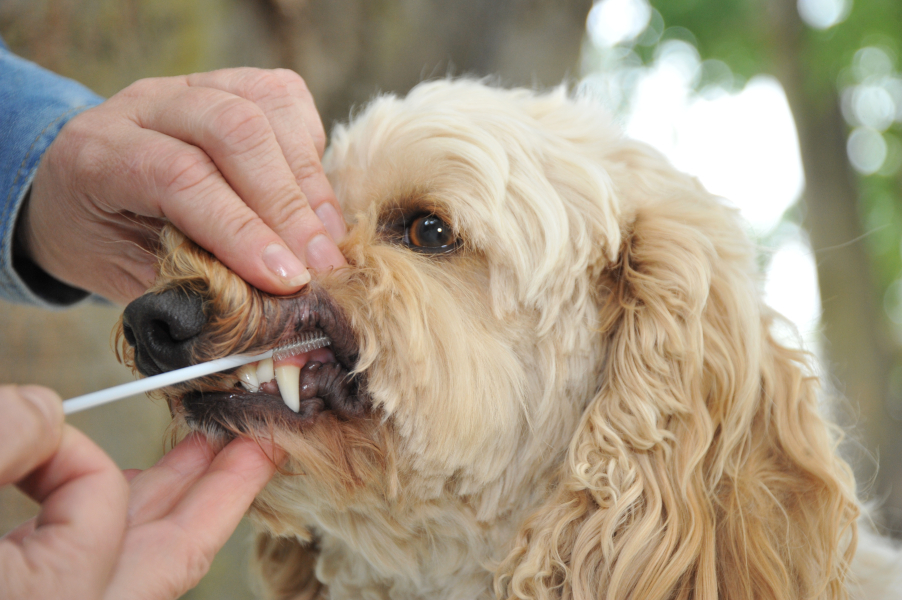Quick Summary
Click here for Price and Turnaround Time
Phenotype: Owners of IGS affected dogs often note a lack of appetite, failure to gain weight, lethargy, and malaise that intensifies after eating. Clinically, anemia and excess urine protein is observed. Without chronic treatment, permanent brain and nervous system damage can occur.
Mode of Inheritance: Autosomal recessive
Alleles: N = Normal, IGS = Imerslund-Gräsbeck Syndrome
Breeds appropriate for testing: Beagle, Border Collie
Explanation of Results:
- Dogs with N/N genotype will not have Imerslund-Gräsbeck syndrome and cannot transmit this Imerslund-Gräsbeck syndrome variant to their offspring.
- Dogs with N/IGS genotype will not be affected by Imerslund-Gräsbeck syndrome, but are carriers. They will transmit this Imerslund-Gräsbeck syndrome variant to 50% of their offspring. Matings between two carriers are predicted to produce 25% Imerslund-Gräsbeck syndrome-affected puppies.
- Dogs with IGS/IGS genotype will have Imerslund-Gräsbeck syndrome
Results of this test can be submitted to the OFA (Orthopedic Foundation for Animals)
Beagle Health Panel
$130 per animal
Border Collie Health Panel
$80 per animal
Sample Collection
Dog DNA tests are carried out using cells brushed from your dog's cheeks and gums. The preferred cytology brushes are sent to you by mail, or you may provide your own brushes. For accepted alternative brushes, click here
We recommend waiting until puppies are at least three weeks old before testing.

Step-By-Step:
- Make sure the dog has not had anything to eat or drink for at least 1 hour prior to collecting sample.
- When swabbing puppies, isolate each puppy from the mother, littermates and any shared toys for 1 hour prior to swabbing. Puppies should not have nursed or eaten for 1 hour prior to collecting sample.
- If collecting samples from more than one dog, make sure to sample one dog at a time and wash your hands before swabbing another dog.
- Label brush sleeve with name or ID of dog to be sampled.
- Open brush sleeve by arrow and remove one brush by its handle.
- Place bristle head between the dog’s gums and cheek and press lightly on the outside of the cheek while rubbing or rotating the brush back and forth for 15 seconds.
- Wave the brush in the air for 20 seconds to air dry.
- Insert brush back into sleeve.
- Repeat steps 5 - 8 for each unused brush in sleeve on a fresh area of cheek and gums. Make sure to use and return all brushes sent by the VGL. In most cases, it will be 3 brushes per dog. If using interdental gum brushes, please note that the VGL requires 4 brushes per dog and only moderate or wide interdental gum brushes are accepted.
- Do not seal brushes in sleeve.
- Place all samples in an envelope and return to the address provided.
ATTENTION:
- Do not collect saliva/drool – the key to obtaining a good sample is getting cheek cells on the swab
- Do not rub swab on the dog’s tongue or teeth – this will result in poor quality sample
- Do not collect a sample from a puppy that has recently nursed – the mother’s genetic material can rub off on the puppy’s mouth and contaminate the sample
Imerslund-Gräsbeck syndrome (IGS) is a disorder found in Beagles and Border Collies where dietary cobalamin (vitamin B12) is unable to be absorbed through the gut. Symptoms of IGS typically appear within 6-12 weeks after birth because stored vitamin B12 supplies are depleted. Symptoms noted by owners include lethargy, failure to gain weight, malaise, and lack of appetite. Symptoms of lethargy and malaise seem to intensify after eating. Clinically, anemia and excess urine protein is observed. IGS is a manageable condition with regular B12 or cobalamin supplementation. However, without treatment permanent brain and nervous system damage can occur.
IGS in Beagles and Border Collies are caused by independent mutations in the cubulin (CUBN) gene. IGS is inherited in an autosomal recessive trait with both sexes being equally affected. Dogs with one normal and one mutated IGS gene (carriers) are unaffected but breeding two carriers together would be predicted to produce 25% affected offspring and 50% carriers.
Testing for inherited IGS in Beagles and Border Collies is important in assisting clinicians, owners, and breeders in identifying affected and carrier dogs. Breeders can use results from the test as a tool for selection of mating pairs to avoid producing affected dogs.
